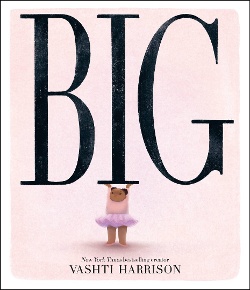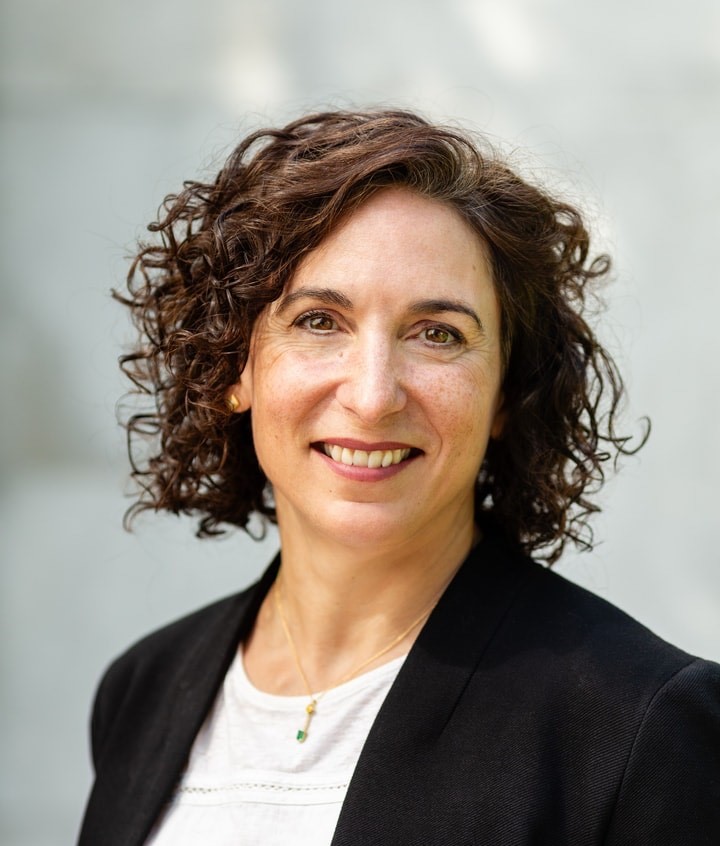The finalists for National Book Award for Young People's Literature includes Vashti Harrison’s picture book, Big. And this is a big deal. We want to take a moment here on Calling Caldecott to push the pause button and let this sink in.
 In September, the National Book Award released its longlist of ten books being considered for the 2023 Young People’s Literature (YPL) Award. The YPL Award typically doesn’t attract the attention of us Calling Caldecott folks, because historically it tends to skew more toward older fiction. This year, the YPL’s longlist represented a broad range of writing for young people, including three graphic novels, a graphic nonfiction work, nonfiction, middle-grade and young adult fiction, and one picture book. This longlist represented diversity of narrative forms, voices, perspectives, and content.
In September, the National Book Award released its longlist of ten books being considered for the 2023 Young People’s Literature (YPL) Award. The YPL Award typically doesn’t attract the attention of us Calling Caldecott folks, because historically it tends to skew more toward older fiction. This year, the YPL’s longlist represented a broad range of writing for young people, including three graphic novels, a graphic nonfiction work, nonfiction, middle-grade and young adult fiction, and one picture book. This longlist represented diversity of narrative forms, voices, perspectives, and content.
In early October, the longlist was narrowed down to five finalists, one of which is Vashti Harrison’s picture book, Big. And this, fellow readers, is a big deal. We want to take a moment here on Calling Caldecott to push the pause button and let this sink in. We will cover Big on the blog later in the season but want to call out this moment for its significance for the National Book Awards and picture books more generally.
Big is about the way that language marks and defines the body. It is about being big, Black, and female, and reclaiming language and rejecting standards of beauty that promote thinness as the ideal body type. It’s about the ironies of taking up space while feeling invisible and small. It’s about how something can be beautiful at one moment, but then ugly and repugnant in another. And the art! It’s doing very interesting things with color, perspective, the use of white space, and layout. It’s a book in soft pastel pinks and curves but with rips, tears, and other jagged edges.
In my research, this is the first time that a picture book has been included as a finalist in the NBA Young People’s Literature Award. Let the data tell the tale. I looked at the YPL’s longlists and finalists going back to 2000 (see a screenshot of my nerdy spreadsheet goodness!) and discovered this striking fact. Readers, please chime in and let me know if I’ve missed anything, or if there was anything pre-2000 that could amend this analysis.
A few picture books (or things that stretch the definition of what a picture book is, but could be considered picture books when push comes to shove) have made the YPL longlist in recent years, including Carole Boston Weatherford and Floyd Cooper’s Unspeakable: The Tulsa Race Massacre (2021); John Rocco’s How We Got to the Moon: The People, Technology, and Daring Feats of Science Behind Humanity’s Greatest Adventure (2020); and Kwame Alexander and Kadir Nelson’s The Undefeated (2019).
To make sure I cast a wide-enough net, I made sure to pay attention to other heavily illustrated novelistic forms and can take a moment to acknowledge also M. T. Anderson and Eugene Yelchin’s The Assassination of Brangwain Spurge, a finalist in 2018, and Vesper Stamper’s What the Night Sings, which made the longlist in 2018. Brian Selznick’s The Invention of Hugo Cabret was a finalist in 2007.
That is all to say: let’s appreciate this big moment and what it might be saying about picture books and their ability to stand up as literary forms for young people alongside novels. The YPL Award, as other awards, have changed over the years to be more inclusive of narrative forms such as graphic novels, memoirs, and nonfiction. But this is a big moment, specifically for picture books.
Stay tuned for the Calling Caldecott coverage of Vashti Harrison’s Big later in the season! In the meantime, I’d love to hear what you think about the inclusion of Big in as a YPL Award finalist! What do you make of it?

RELATED
ALREADY A SUBSCRIBER? LOG IN
We are currently offering this content for free. Sign up now to activate your personal profile, where you can save articles for future viewing.








Add Comment :-
Comment Policy:
Comment should not be empty !!!